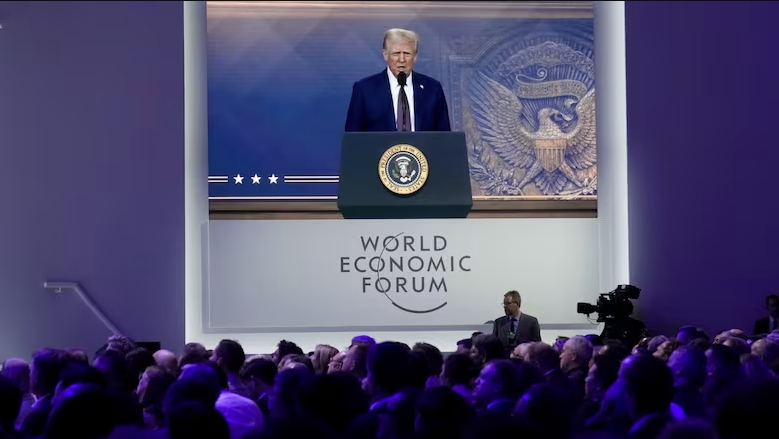Trump's Tariff Threat Divides Conservatives in Canada Over Response Strategy
Shraddha Tripathy
1/24/20252 min read


President Donald Trump has reignited trade tensions with Canada, this time with a dramatic suggestion: “You can always become a state.”
Trump’s remark, delivered Thursday during a video address at the World Economic Forum in Davos, Switzerland, accompanied a warning of 25% tariffs on Canadian goods, potentially effective Feb. 1. This latest move has left Canadian leaders grappling with whether to respond with diplomacy or retaliation.
A Divided Conservative Approach
The prospect of harsh U.S. tariffs has split Canada’s Conservative leaders. Alberta Premier Danielle Smith and Saskatchewan Premier Scott Moe have called for cooperation over confrontation. Smith, fresh off a visit to Trump’s Florida golf club, argued that diplomacy is the only viable path.
“I don’t think this president responds well to threats, especially empty ones,” she told reporters.
Similarly, B.C. Conservative Party Leader John Rustad emphasized the importance of maintaining a positive trade relationship with Canada’s largest trading partner. “We need to work with them, not fight with them,” Rustad said.
However, not all Conservatives agree. Ontario Premier Doug Ford has backed the idea of dollar-for-dollar retaliatory tariffs, aligning with B.C. Premier David Eby of the NDP.
“You can surrender and give up, or you can stand up,” Eby said, outlining potential retaliatory measures such as mineral export bans, fees on U.S. trucks, and restrictions on American firms bidding on B.C. infrastructure projects.
Political Calculations and Regional Interests
Hamish Telford, a political scientist at the University of the Fraser Valley, noted that the diverging approaches reflect regional political calculations.
“They are considering where their base is at when deciding how to approach Trump,” Telford said. “Danielle Smith is engaging diplomatically because that aligns with Alberta’s priorities, while Doug Ford’s tougher stance plays well in Ontario.”
Navigating Trump’s Rhetoric
Trump’s provocative comments—such as Canada becoming the 51st U.S. state—have added fuel to the fire. While some see them as inflammatory distractions, others view them as opportunities to reassess Canada’s trade strategy.
Allie Blades, a Conservative strategist based in B.C., praised Smith’s engagement with Trump, suggesting that ignoring him outright could be a missed opportunity.
“Trump’s comments are often antagonistic, but politicians must look past the rhetoric and focus on tactics to defend Canadian interests,” Blades said.
Consensus on Domestic Trade
One area of agreement among Canadian leaders is the need to improve interprovincial trade. Rustad highlighted this as a potential silver lining to Trump’s actions.
“There’s serious talk now about making it easier to trade within Canada,” he said. “It’s something we all agree on, regardless of political stripe.”
What’s Next?
With Trump’s tariff threat looming, Canadian leaders will need to decide whether to double down on diplomacy, prepare for economic retaliation, or adopt a balanced approach. For now, the debate underscores the challenge of navigating a complex relationship with a powerful but unpredictable neighbor.
News
Stay updated with the latest BC news stories, subscribe to our newsletter today.
SUBSCRIBE
© 2025 Innovatory Labs Inc.. All rights reserved.
LINKS
